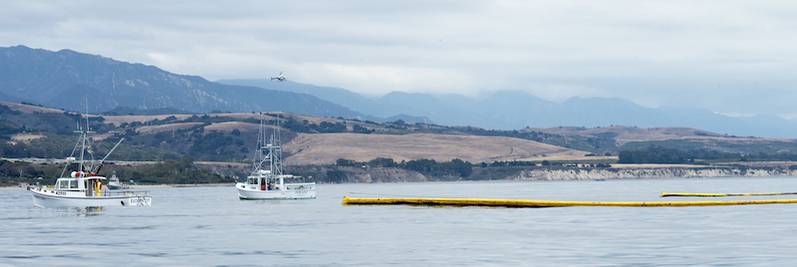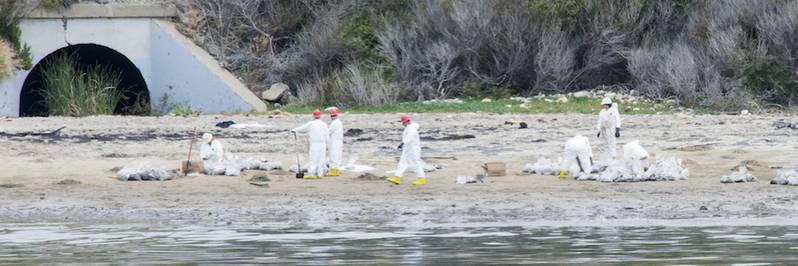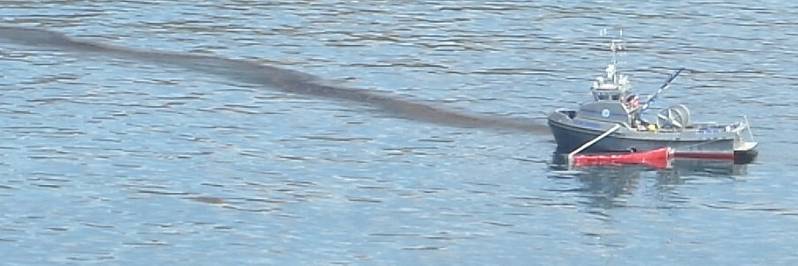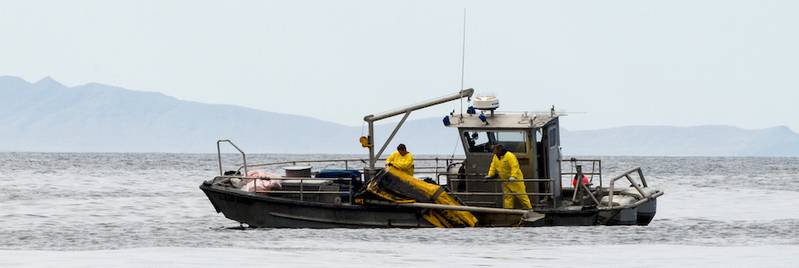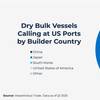Federal order ensures continued action on Santa Barbara County oil spill
The U.S. Environmental Protection Agency and the U.S. Coast Guard issued a joint federal Clean Water Act order to ensure the cleanup of heavy crude oil leaked from a pipeline near Refugio State Beach, Santa Barbara County, Calif. The order requires Plains Pipeline, L.P. (a.k.a. Plains All American Pipeline), the pipeline owner and operator, to continue its cleanup work inland, beachside, and in the ocean, to contain the oil and prevent further shoreline contamination.
Today’s order establishes federally enforceable timelines and cleanup requirements for the long-term response action that will be required to clean up the largest coastal spill in California in the last 25 years.
“Our action today is to make sure the oil response work continues until the Santa Barbara County coastline is restored,” said Jared Blumenfeld, the EPA’s Regional Administrator for the Pacific Southwest. “Working closely with our local, state and federal partners, we will see this cleanup through to the end.”
“The Coast Guard will maintain its course to completion,” said Capt. Jennifer Williams, Unified Command Federal On-Scene Coordinator. “While this defines Plains Pipeline as the responsible party, federal and state agencies will continue to work alongside the responsible party and maintain our priority of safety of the public, personnel and the environment.”
Since the 24-inch pipeline ruptured on May 19, with an estimated 105,000 gallons of heavy crude inside, trained cleanup crews have been working to capture and remove oil that has leaked from the pipeline, seeped into the soil, and reached the shoreline and ocean. The Coast Guard and EPA mobilized immediately after notification of the spill and integrated into a Unified Command with California Department of Fish & Wildlife’s Office of Spill Prevention and Response and Santa Barbara County’s Office of Emergency Management.
The federal agencies appreciate the critical role played by the state and county in their collaboration to protect California's coast. Nearly 1,000 people have participated cooperatively under the Unified Command. On the ocean, 2240 feet of hard boom and 1840 feet of sorbent boom have been used, and 10,060 gallons of oily water have been recovered from skimming operations. Crews on land have removed 310 cubic yards of oiled vegetation, 760 cubic yards of oiled sand and 2,610 cubic yards of oiled soil.
Today’s compliance order requires Plains to:
- Continue oil removal and site control operations currently underway until a work plan is approved
- Submit to the Coast Guard and EPA and by June 6 a written work plan for response activities, including plans for sampling and analyzing air, water, rocks and soil
- Ensure no more oil is released into the environment
- Clean up all remaining oil and petroleum contamination at the release and oil-impacted areas
EPA and the U.S. Department of Transportation’s Pipeline and Hazardous Materials Safety Administration will investigate the cause of the pipeline failure, and will continue to investigate the environmental impacts of the spill with our federal, state and local partners.







